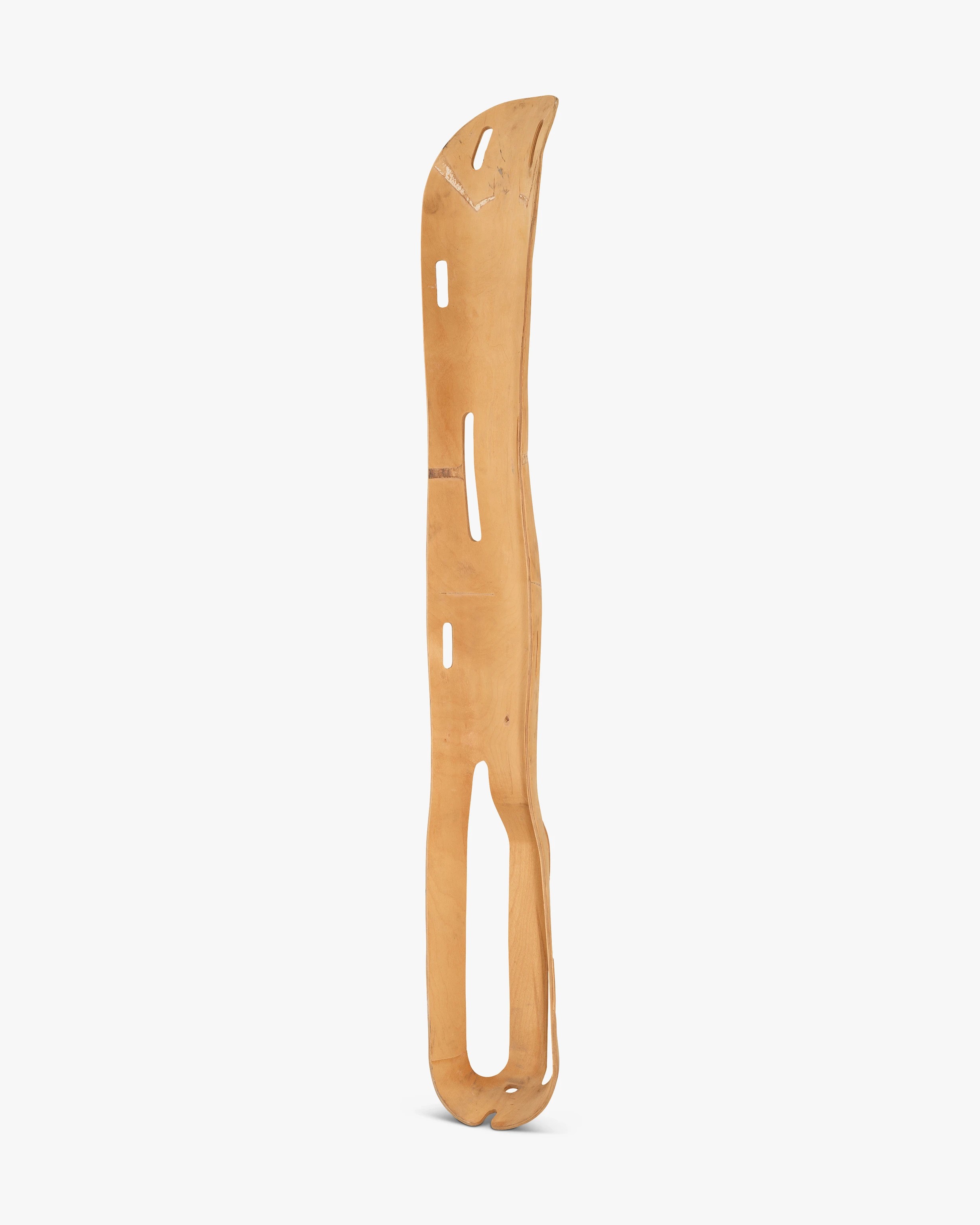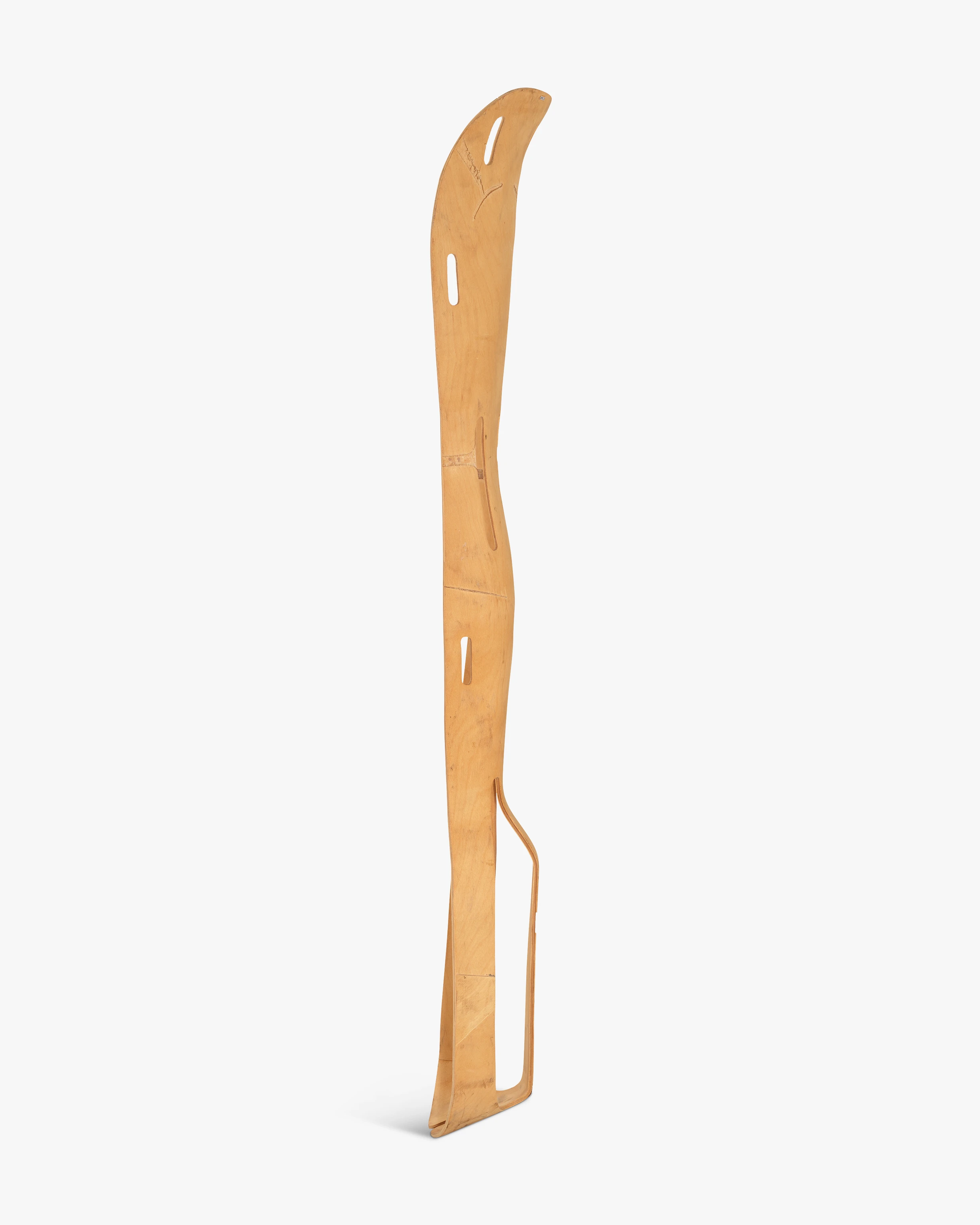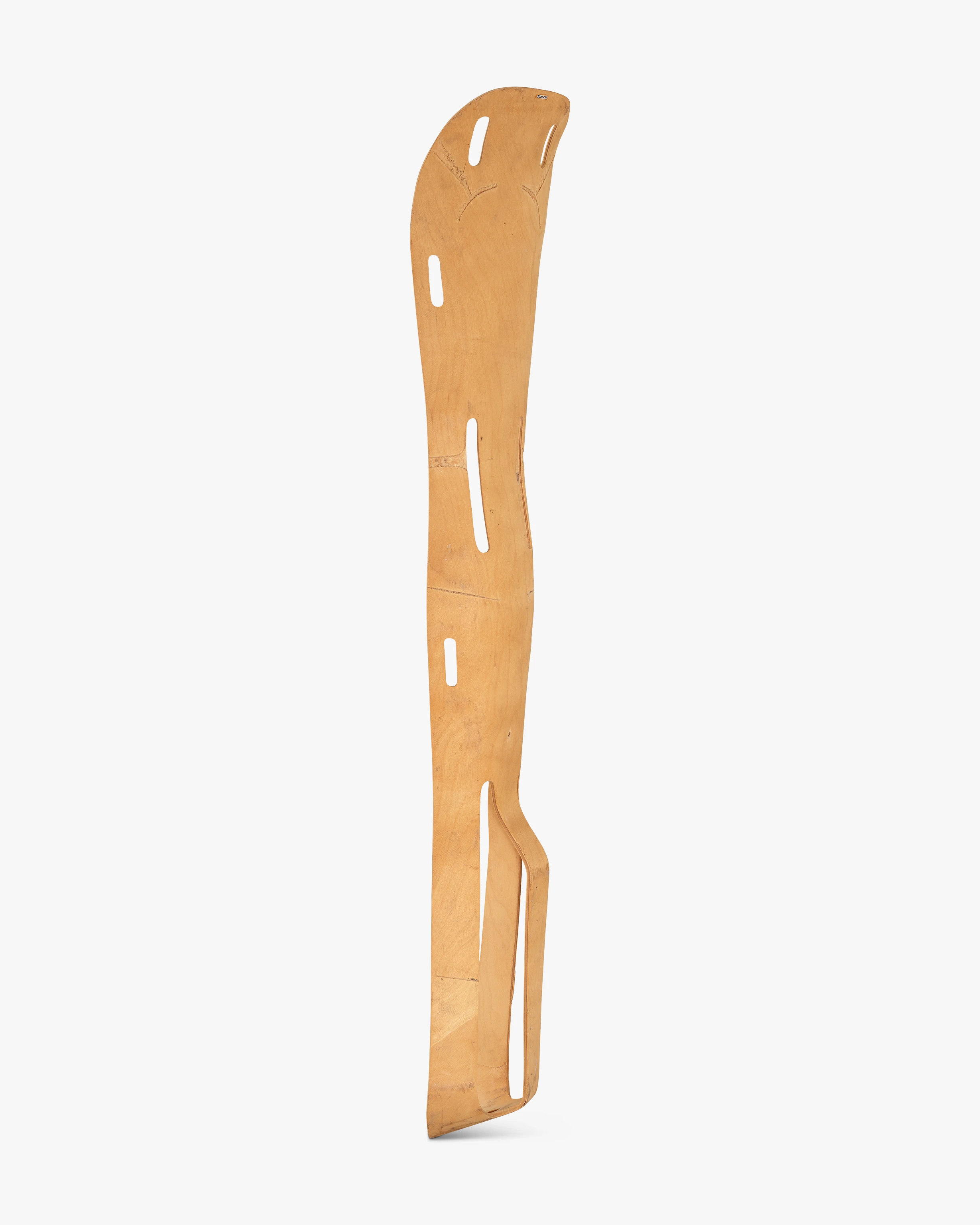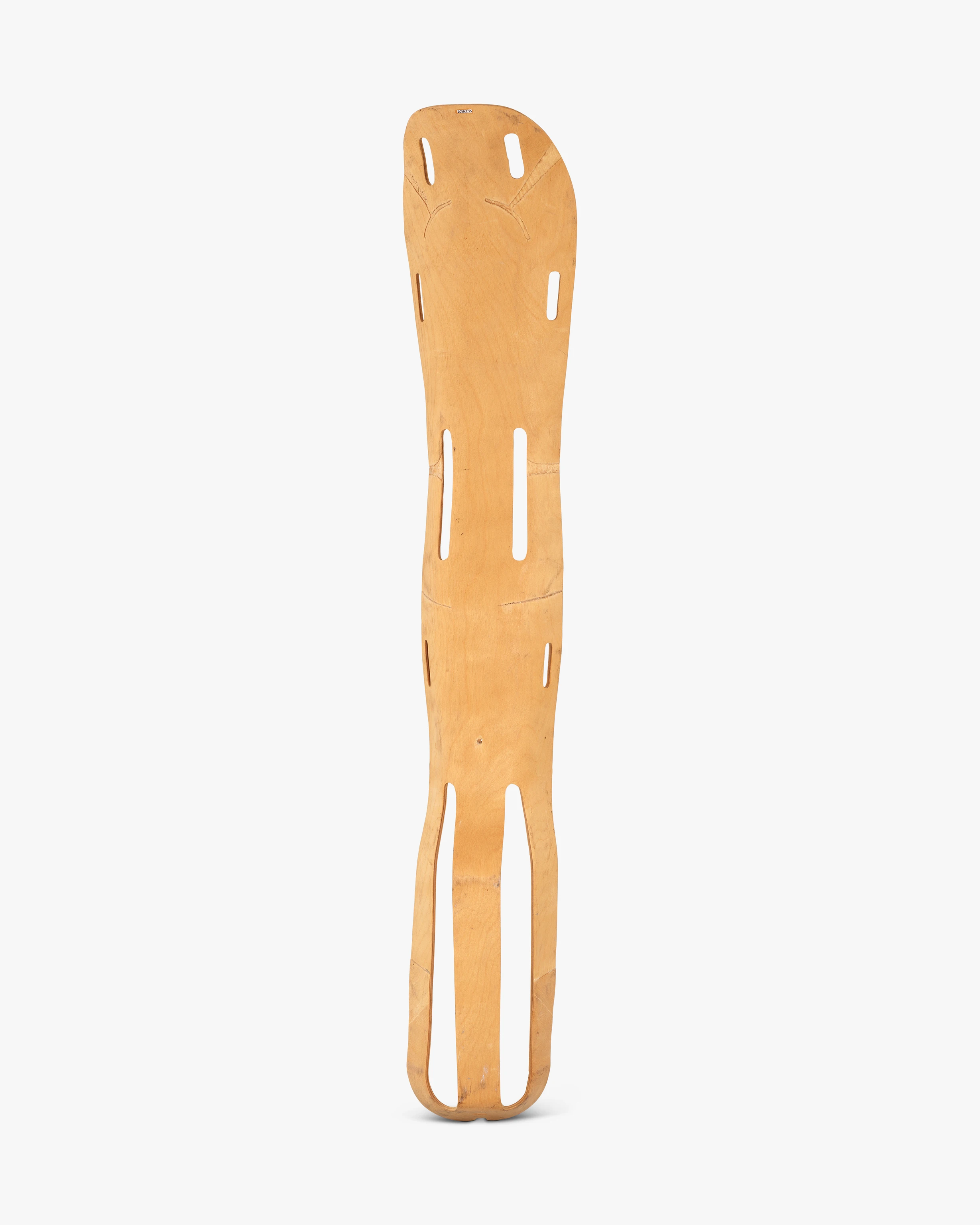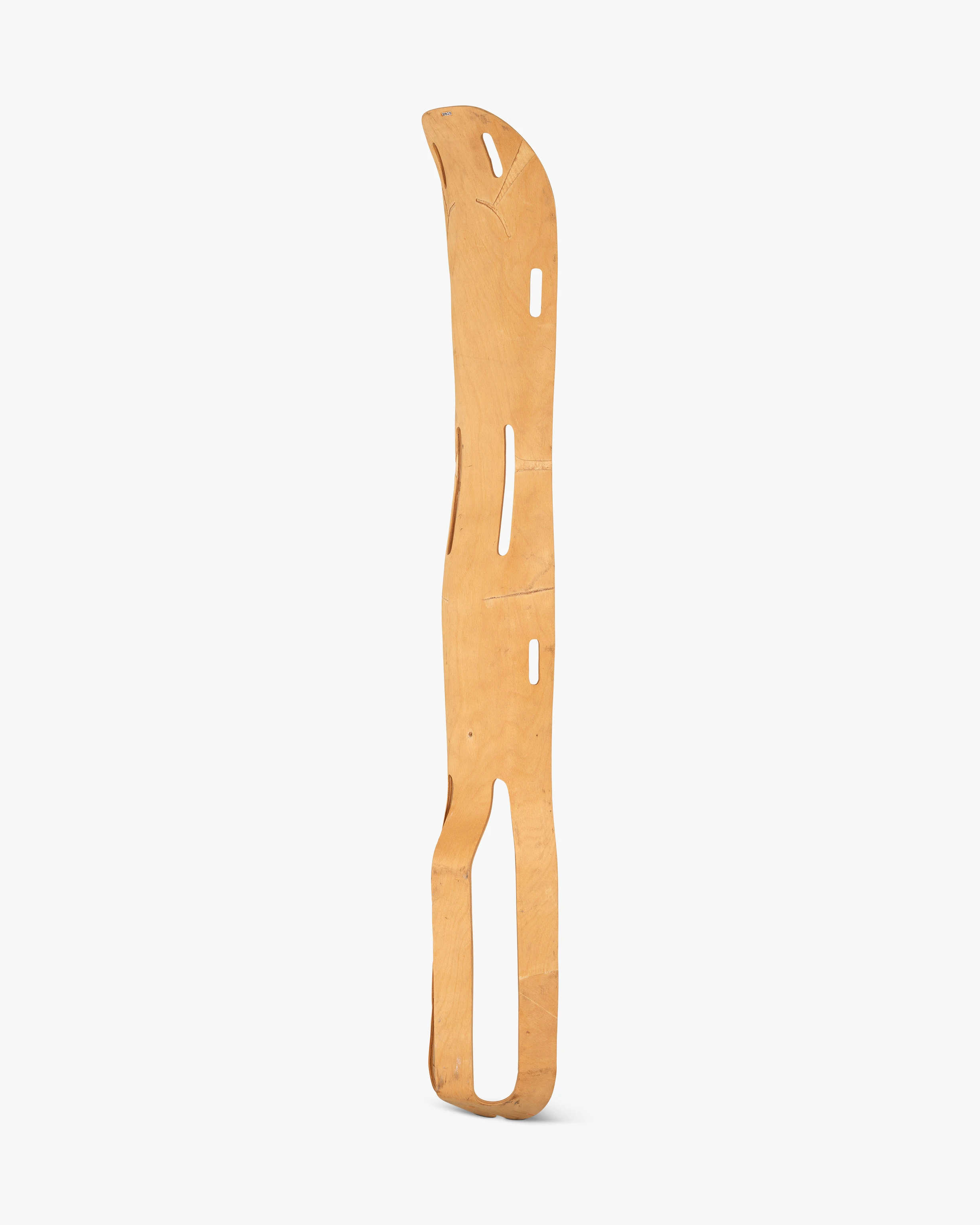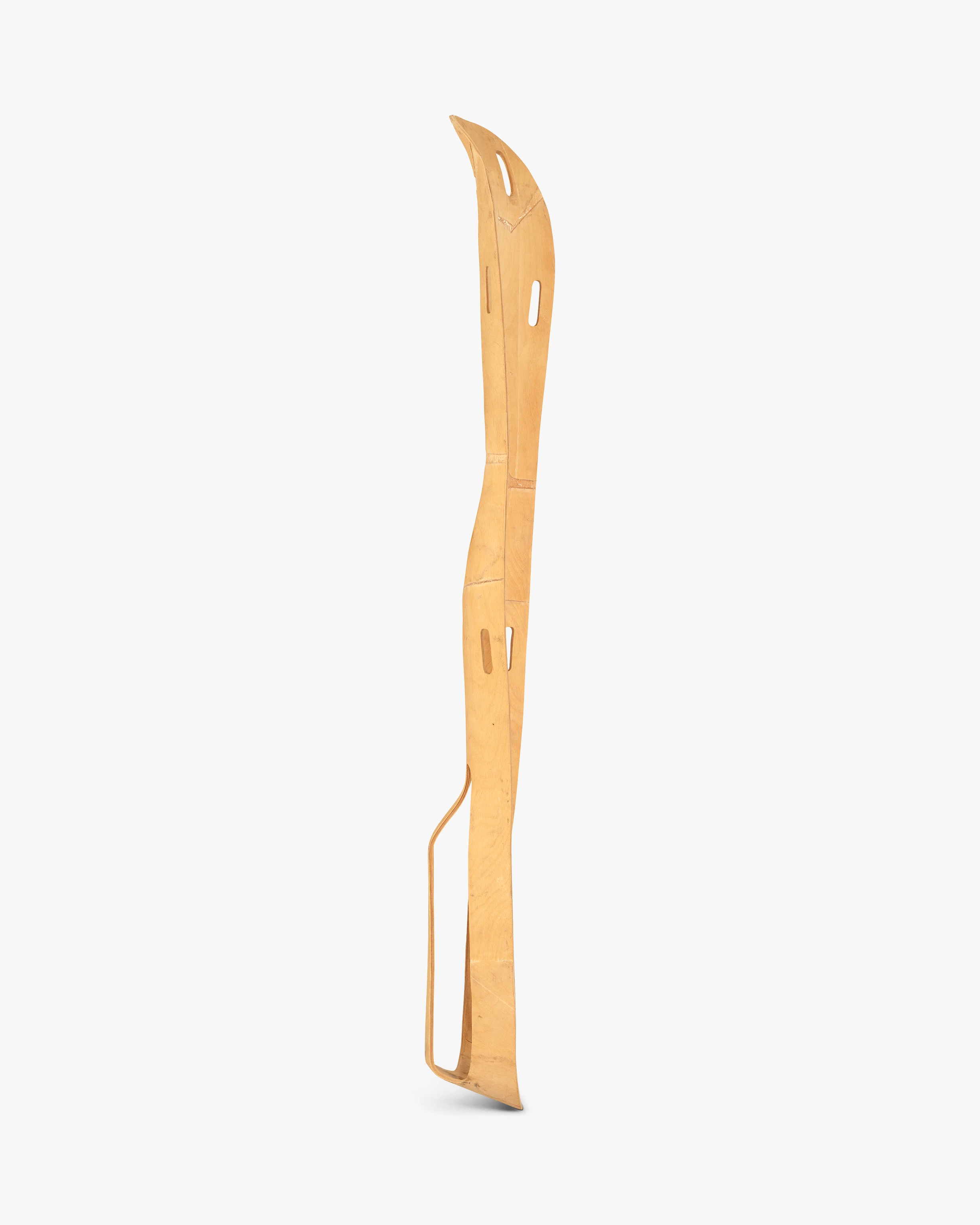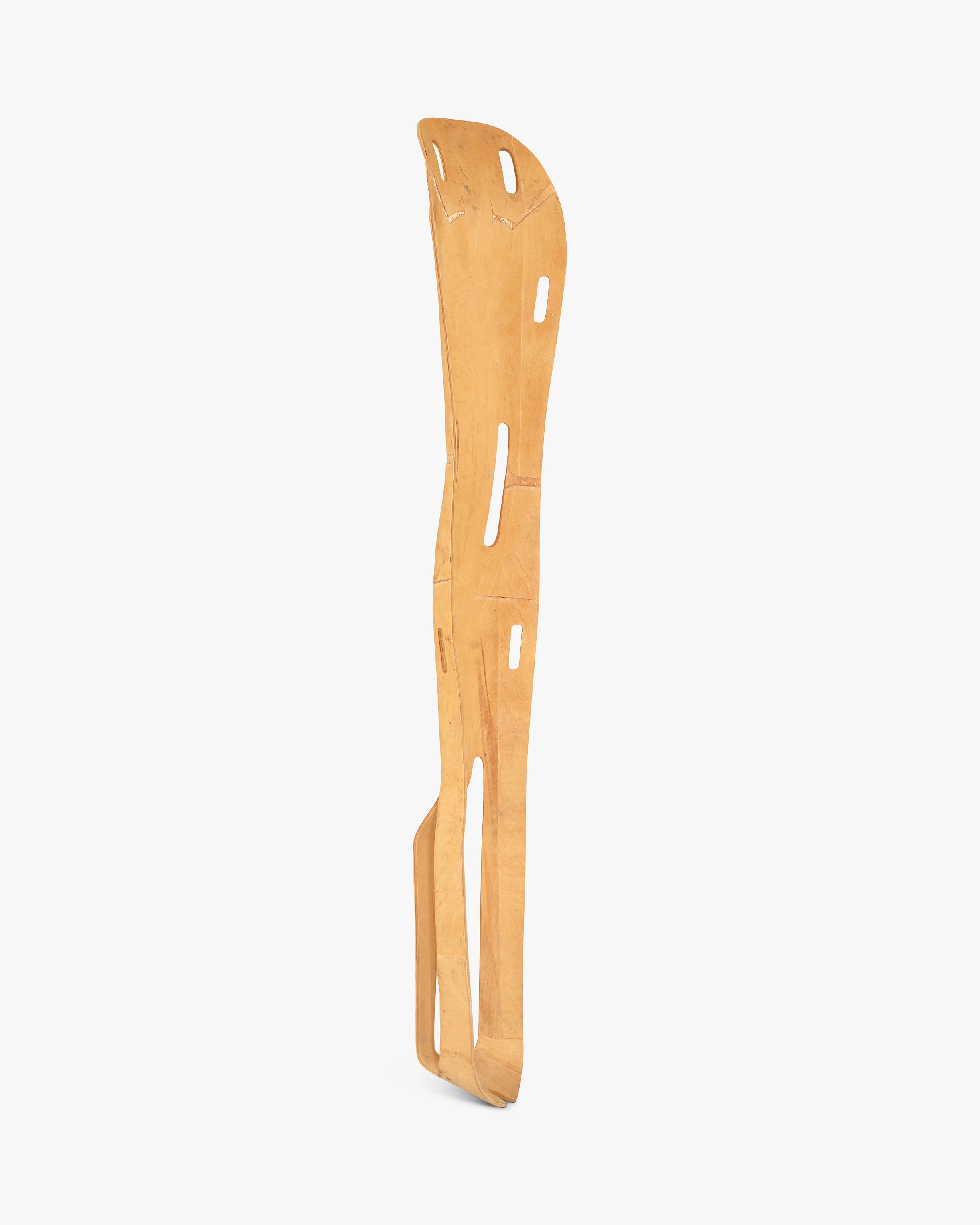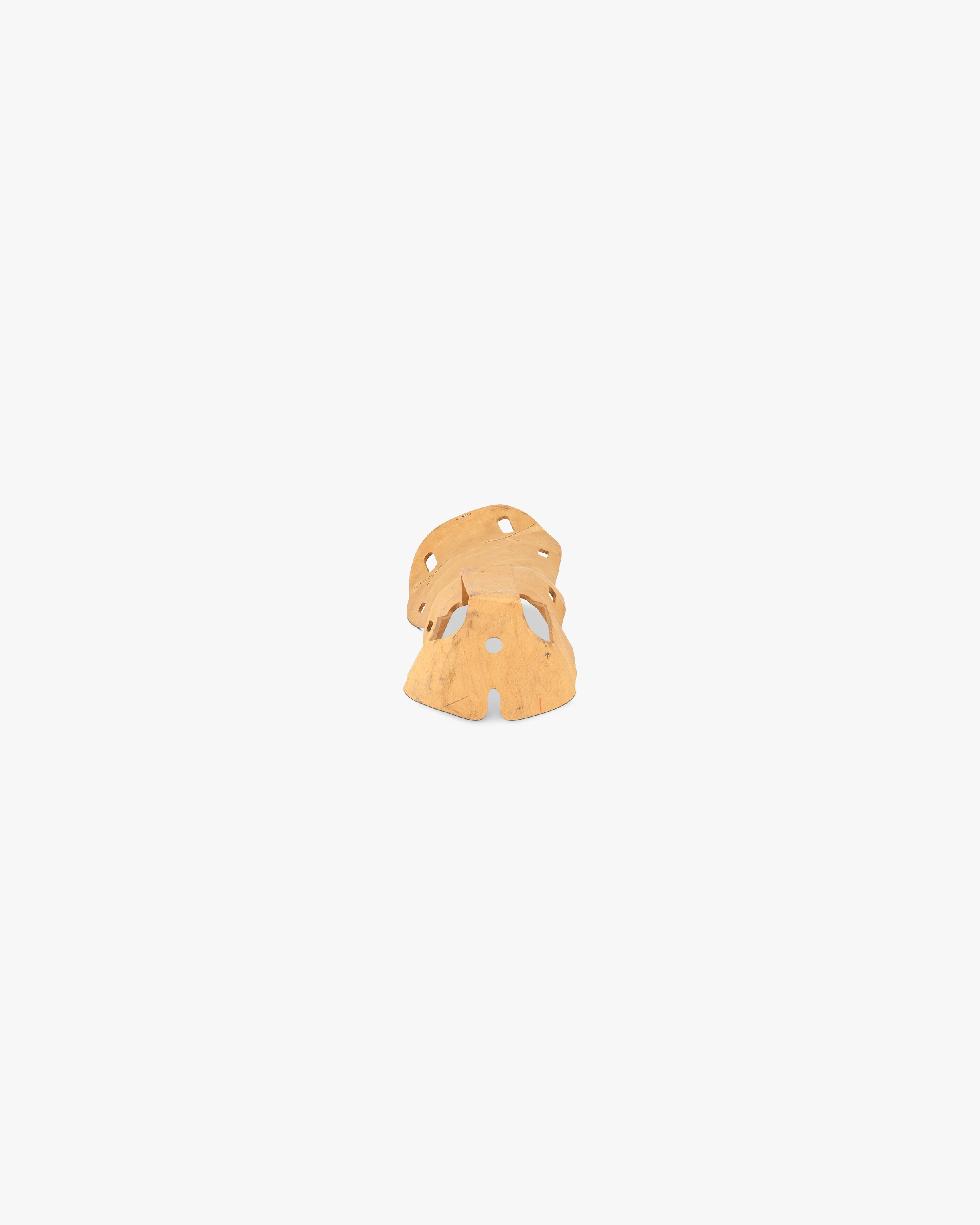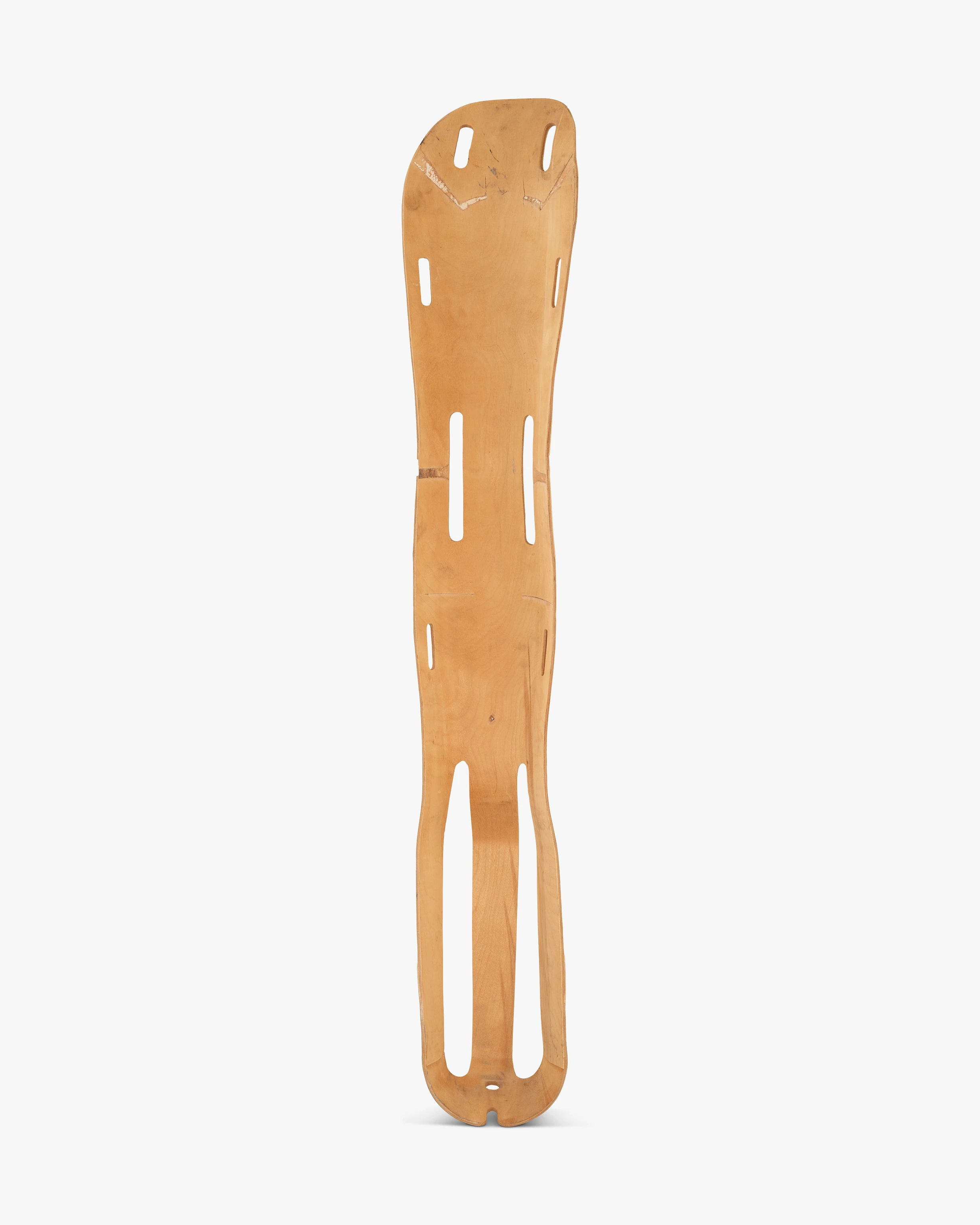
Leg Splint (Birch)
The shape of the leg splint served two important functions: it provided comfortable support to an individual’s wounded leg and economized space by stacking for safe and low-cost shipping. Likewise, the holes in the splint had two objectives: they relieved stress on the molded plywood, to prevent splitting, and they provided access for bandages needed to secure a leg to the splint. The splint could be fastened by strips of gauze or even strips of cloth torn from a shirt, making the adaptable design ideal for the unpredictable conditions of the battlefield. In order to arrive at a design that would support any lower extremity, the Eameses made and studied a series of molds in various shapes and sizes. They made the splint large enough to be used without removing the trousers or the heavy field shoes of a wounded soldier.
- Artifact
- 2019.2.13
- Material
- Birch plywood
- Artists / Designers
- Charles Eames, Ray Eames
- Manufacturer
- Evans Products Company, Molded Plywood Division (American, founded 1943)
- Dimensions
- 41 × 7 ⅞ × 4 ½ in
- 104.1 × 20 × 11.4 cm
- Date
- 1944
